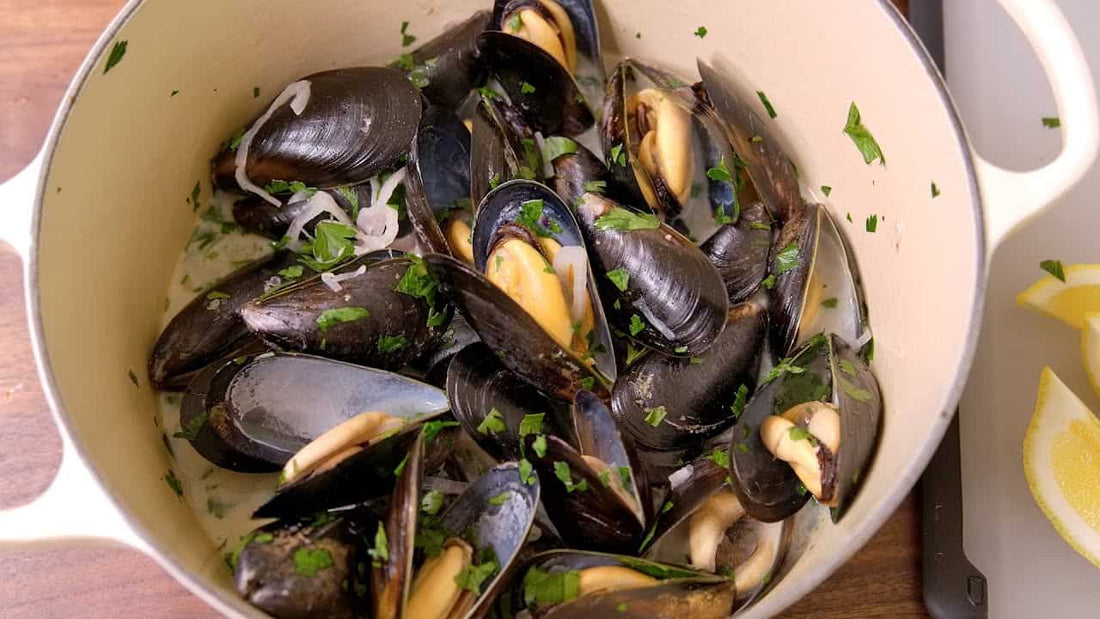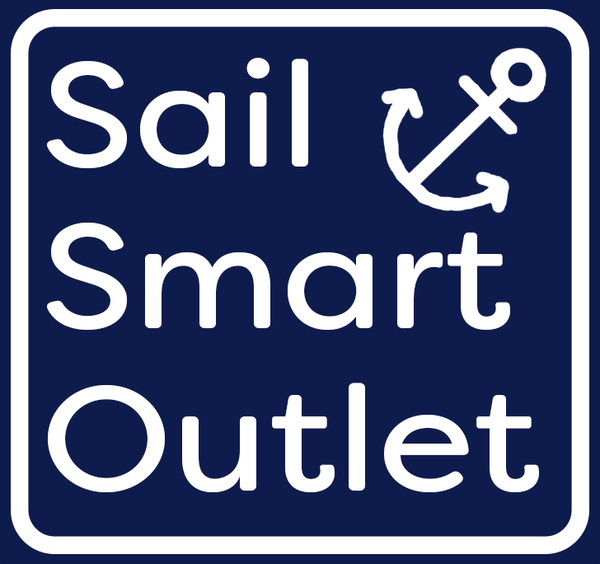Sea-to-Plate Delights: Exploring Mussel Magic with Sail Smart

In the vast expanse of the ocean, where the wind whispers secrets and waves dance to their own rhythm, lies a treasure trove of sustenance that not only nourishes our bodies but also nurtures the environment. As sailors, we are intimately connected to the sea, and it's our responsibility to cherish and protect its delicate balance. At Sail Smart Outlet, we not only advocate for responsible sailing practices but also celebrate sustainable choices that benefit both sailors and the marine ecosystem. Today, we set sail on a journey to explore the culinary delight of mussels and their profound environmental impact.
Mussels, those unassuming mollusc's clinging to rocks and docks, are unsung heroes of the sea. Beyond their delectable taste and versatility in the kitchen, mussels play a crucial role in maintaining water quality and supporting marine biodiversity. These filter feeders tirelessly purify vast volumes of seawater, removing pollutants and excess nutrients in the process. By indulging in a savoury bowl of steamed mussels, you're not just treating your taste buds; you're also participating in a sustainable solution for ocean conservation.
But how exactly does dining on mussels contribute to environmental stewardship? Let's delve deeper into the ecological benefits of incorporating these mollusc's into our culinary repertoire:
-
Water Filtration: Mussels are nature's filtration system. A single mussel can filter up to 20 gallons of water per day, trapping microscopic algae, bacteria, and pollutants in their gills. By consuming mussels, we support their natural function as purifiers, which in turn helps to maintain the health of marine ecosystems.
-
Ecosystem Support: Healthy mussel populations provide essential habitat and food sources for various marine organisms. Their presence fosters biodiversity, creating thriving ecosystems that are more resilient to environmental stressors such as pollution and climate change. By consuming sustainably harvested mussels, we promote the conservation of these critical habitats.
-
Carbon Sequestration: Mussels play a role in carbon sequestration by absorbing carbon dioxide from seawater and incorporating it into their shells and tissues. This process helps mitigate ocean acidification, a growing concern resulting from increased carbon emissions. By including mussels in our diet, we indirectly contribute to carbon capture and the preservation of marine biodiversity.
-
Ethical Consumption of Animal Protein: Mussels are often considered one of the most ethical forms of animal protein consumption. They are farmed using sustainable aquaculture practices with minimal environmental impact. Additionally, mussels have minimal animal welfare concerns, as they lack a central nervous system and sensory organs, making them a more ethical choice for conscientious consumers.

Sustainable Foraging for Mussels: For those eager to experience the thrill of harvesting their own mussels from coastal shores, it's essential to practice sustainable foraging techniques. Here are some best practices to ensure that your mussel foraging endeavours are environmentally responsible:
-
Know the Regulations: Before heading out to forage for mussels, familiarize yourself with local regulations and restrictions regarding shellfish harvesting. Many areas have specific rules regarding size limits, harvesting seasons, and protected areas to prevent overexploitation and ensure the sustainability of mussel populations.
-
Choose Sustainable Locations: Select harvesting locations that are free from pollution and contamination, such as industrial runoff or sewage discharge. Opt for areas with clean, clear water and abundant mussel populations to minimize the environmental impact of your foraging activities.
-
Harvest Responsibly: When collecting mussels, use a knife or scraper to gently detach them from rocks or other surfaces, taking care not to damage surrounding marine life or habitat. Avoid over-harvesting by only taking what you need and leaving smaller mussels and juveniles to continue growing and reproducing.
-
Practice Leave-No-Trace: Leave the shoreline as you found it, without leaving behind any litter, debris, or disturbed habitats. Dispose of any packaging or waste properly and respect the natural beauty of the coastal environment.
By following these sustainable foraging practices, you can enjoy the thrill of harvesting your own mussels while minimizing your impact on the marine ecosystem.

At Sail Smart Outlet, we recognize the interconnectedness of sailing and environmental stewardship. By advocating for sustainable practices both on and off the water, we strive to minimize our ecological footprint and preserve the beauty of the marine environment for future generations. Embracing the culinary delight of mussels is not just a gastronomic pleasure; it's a conscious choice to support the health and vitality of our oceans.
As sailors, let's embark on a journey of culinary exploration that honors the bounty of the sea while safeguarding its fragile ecosystem. Together, we can sail towards a more sustainable future, one delicious mussel at a time.
Fair winds and sustainable seas,
Sail Smart Outlet Team





